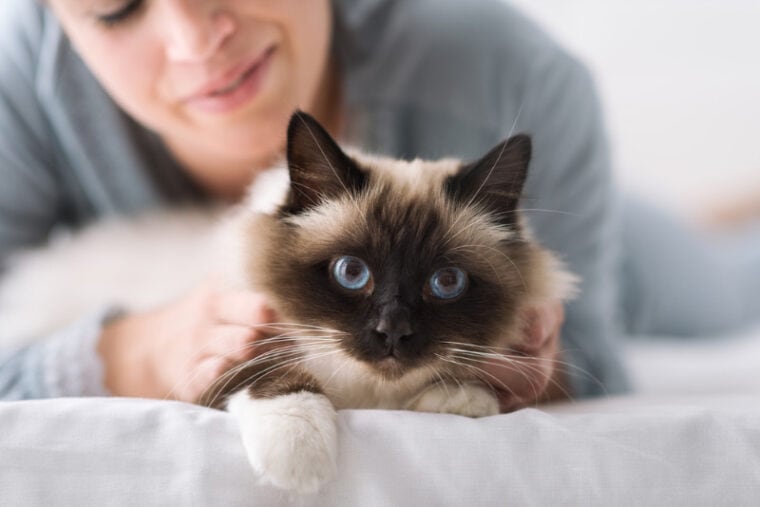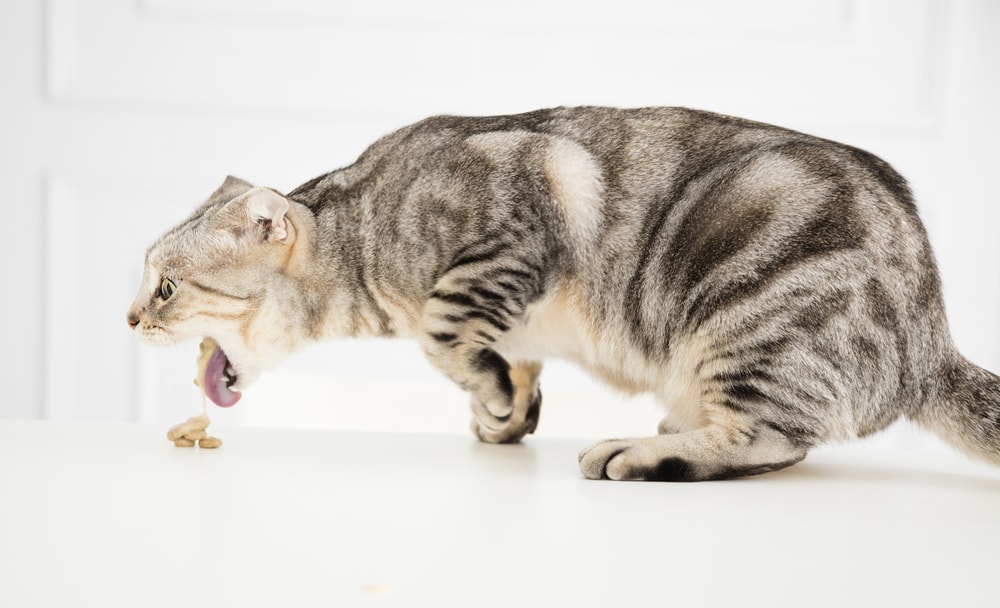
Click to Skip Ahead
You have probably noticed noisy gurgling sounds coming from your cat’s abdomen on more than one occasion. These are the same type of noises as those you hear from your own stomach, which you may be more familiar with. These audible gurgling and growling noises are known as borborygmus or borborygmi and are sounds coming from the intestines.
These rumbles are natural and originate from the peristalsis or movement of food and waste being pulsated through the stomach and along the intestinal tracts. The majority of the time, borborygmus is completely safe and normally raises no cause for concern. However, it can also be a sign of other underlying health problems and disturbances, so if it is something of concern to you, occurs frequently, is increasing, or you find other signs present, then a trip to your veterinarian is warranted to investigate the cause.
Should any other cause be discovered, then necessary treatment or advice will be instigated.
Why Does My Cat’s Stomach Make Loud Noises?
For the most part, these loud noises occur because of the normal and natural digestive process of food and liquids passing through the gastrointestinal system, along with some gas. Normally, these digestive noises are not heard by us, but this is not always the case.
Gas (air within the gastrointestinal system) accounts for most of the noise and is also a normal occurrence within the feline gastrointestinal system. Gas is either created by air being ingested at the time of eating or by bacteria in the gut. As food, waste, and liquids are maneuvered through the gastrointestinal tract via a particular type of propulsion move called peristalsis, the abdomen can make some audible noises. For example, a growling noise may indicate the stomach emptying, while popping, rumbling, or gurgling sounds generally refer to the mixture within the intestines being digested and pushed along.
Some cats simply have more noisier tummies than others. If your cat has poor or unbalanced intestinal flora, this may also contribute to gurgling noises. Similarly, gastrointestinal disease can do the same.

What Should I Do About My Cat’s Gurgling Stomach
In the first instance, just observe and monitor. Do the sounds occur after eating and drinking or at random times? Are other signs and/or unusual behaviors exhibited at the same time as the gurgling or at other points throughout the day? Are they in obvious discomfort when the gurgling happens? Any of these concerns require a veterinarian to investigate further.
If after observing your cat, the noises only seem to occur post-eating and your feline friend is otherwise well and showing no signs of pain or discomfort, then there is usually no reason to worry. However, read on to discover what other signs and problems to watch out for that may coexist with the gurgling, thus indicating a potential health issue.
Signs to Watch Out for Alongside Gurgling Stomachs

The reason for borborygmus may not solely be down to the normal digestive process in all cats and in all cases. Gurgling noises happening at the same time as other signs indicate that a medical exam is in order; therefore, if you notice one or a few of the signs below alongside a noisy tummy, please have your veterinarian examine them to rule out other medical problems. It is also worth seeking advice if the stomach gurgling persists, increases, or changes in any way.
Causes of Gurgling Stomachs in Cats
Aside from the natural peristalsis motion causing rumbles, growls, and gurgles, here are some of the health conditions could also be at play;
Conclusion
Gurgling or noisy tummies often have no cause for concern, but it is always worth having this problem checked out with your veterinarian. Sometimes, other underlying health issues can cause these noises. Your veterinarian can assist in finding options to help keep your cat healthy, and stomach gurgling to a minimum.
Featured Image Credit: Stock-Asso, Shutterstock







